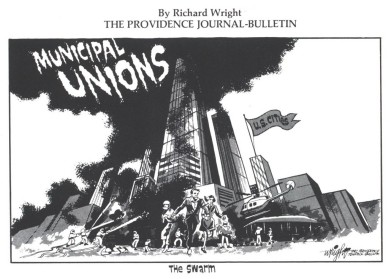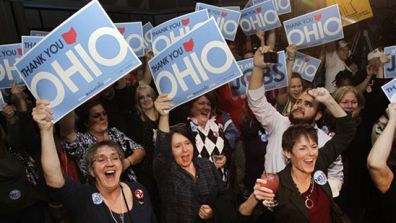Right to Work Opponents Are Wrong
Writing for the Indianapolis Political Examiner, Abdul-Hakim Shabazz confronts Big Labor's misinformation campaign against Right to Work laws head-on: While at the Statehouse on Organization Day, I took some time to speak to some of the protesters in the hallways about potential ‘Right to Work” (RTW) legislation. I made it a point to keep an open mind and listen to their arguments against RTW. After speaking to about half a dozen or so, I have come to the conclusion that the arguments against RTW are not based on logic, but based on emotion; albeit the emotion is fear and it is the most powerful of emotions, but it still a pathos-driven argument. I reached the conclusion that the arguments were emotionally-based, because the “logical” arguments against RTW aren’t very logical at all. Allow me to walk through the main points. Right to Work is really right to work for less The data shows that when adjusted for costs of living, salaries in right to work states are comparable to non-RTW states. RTW is a way to break the unions Unions still exist under RTW laws, membership just can’t be compelled. If a union is providing quality service and responding to its members needs, it shouldn’t have to worry about members bolting and leaving their ranks. RTW allow non-union workers to “freeload” off the union. When the employees agree to form a union, they can decide whether the collective bargaining agreement applies only to members or all employees. So if a union decides to represent people who aren’t members and aren’t paying dues then that sounds like a personal problem to me. RTW interferes with an employer’s right to contract I find this argument the most intriguing. Primarily since it usually comes from people who have no problem imposing government regulations on business (i.e. smoking bans), but for some reason this regulation they have some concern.





